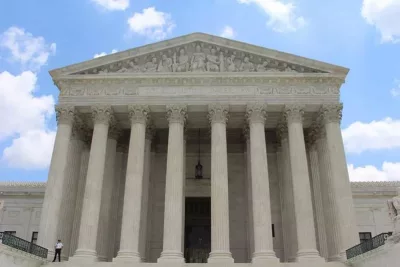
- Originally Published on July 10, 2020
What is a Defamatory Statement?
One of the most common and essential questions that clients want to know when they call our firm for help is whether or not they have a valid claim for defamation.
This isn’t always as straight forward or easy of an answer as it may seem because of the many defenses and other legal nuances involved in defamation cases. However, as a starting point we look at whether there is a defamatory statement. Which is exactly what you will learn about in this post.
What is a defamatory statement?
A defamatory statement is any communication of false facts that harms the reputation of
another person or tends to lower his respect or confidence in the community. A plaintiff must prove that a statement was defamatory to bring a defamation claim against another.
Keep reading below, as we will walk you through the rest of what you need to know about this determination, including:
- Elements of a defamation claim,
- Difference between libel and slander,
- Definition of defamation per se and defamation per quod,
- Public vs. private defamation plaintiffs, and
- Damages available to defamation victims.
With a team of experienced attorneys, we will fight for the closure you deserve. Take back control today.Don't suffer in silence.
Elements of a Defamation Claim
A plaintiff bringing a defamation claim against an author or speaker of a defamatory statement must prove specific facts or elements to succeed in their claim. In most states, a plaintiff must prove that:
- There is a false statement purporting to be fact;
- The false and defamatory statement was published by the defendant;
- The statement is of and concerning the plaintiff;
- If the plaintiff is a private figure, that the defendant was negligent in publishing the statement;
- If the plaintiff is a public figure, that the defendant acted with actual malice in publishing the statement;
- The plaintiff suffered reputational and/or economic damages as a result of the publication.
Additionally, some states require that a plaintiff prove the defamatory statement is unprivileged, whereas others hold that a defendant must raise privilege as a defense (ex. absolute privilege, qualified privilege).
Libel vs. Slander
Defamatory statements fall into one of two categories: libel or slander. Slander is a spoken communication to a third party, whereas libel is a written or printed communication published to third parties. Libel law encompasses written statements, pictures, or videos that are published by a particular medium.
For example, libel includes statements printed in a newspaper or posted on social media. The main distinction is that slander is verbally communicated, whereas libel is communicated by written publication.
The elements to prove a defamation claim are the same, regardless of whether a defamatory communication is slander or libel. However, it is very important that the correct defamation action is brought, or else the case may be dismissed.
Defamation Per Se
Most states recognize that certain defamatory statements are defamatory per se, meaning that the communication, by its nature, is presumed to be defamatory without the plaintiff having to prove it harmed her reputation or that she suffered special damages.
Communications that are libel per se or slander per se typically include allegations that:
- The plaintiff committed a crime;
- The plaintiff is infected with an offensive and/or contagious disease; or
- The plaintiff is unprofessional or incompetent in their trade or profession.
Examples of Defamation Per Se
A pediatrician said that a child psychologist was “incompetent and not qualified to work with children” and had been fired by the CDC “based on his incompetence.”
A newspaper article that stated the plaintiff owned a truck full of marijuana that was seized by police.
A model’s photograph was published, without her consent, by the New York State Division of Human Rights in a public service announcement regarding HIV-positive persons.
Defamation Per Quod
If a statement is not defamatory per se, then the plaintiff must provide the court with extrinsic evidence showing the statement is defamatory and caused the plaintiff to incur special defamation damages. This type of defamation is traditionally referred to as defamation per quod, however, some states no longer use that term.
Defamation per quod occurs where the nature of the communication is not easily or obviously identifiable as defamation, but could have an innocent meaning.
“Special” damages” means that the plaintiff must specifically allege what damages were caused by the defamatory communication and that they suffered some sort of economic loss in addition to merely harm to reputation.
Examples of Defamation Per Quod
A radio broadcaster sued a former on-air partner for implying to listeners that the broadcaster was fired for misconduct at the radio station.
The libelous statement that a company did not pay prevailing wages and economic benefits for operating engineers was defamatory per quod.
A bank president called the husband and friends of a woman to whom he had issued loans and insinuated the loans were made in exchange for sex with a bank manager.
Defamatory Statements About Public vs. Private Figures
In the historic defamation case of New York Times v. Sullivan, the U.S. Supreme Court established two different standards of fault that defamation plaintiffs must meet based on whether they are a private or a public figure. These standards remain at the heart of and entrenched in U.S. defamation law to this day.
A private figure is an everyday individual who has not become involved in a public controversy or matter of public concern. A public figure, on the other hand, has gained some prominence or notoriety and/or have become involved in a public controversy.
Public Figures
Public figures are typically celebrities, activists, and politicians, however, any individual who becomes involved in a public debate or matter of public concern can be considered a public figure. The term public figure encompasses public officials. Public officials are government employees, who have or appear to have, a significant role in the business of government and public affairs.
Because public figures benefit from their notoriety and are in a position more susceptible to public comment, the First Amendment requires them to meet a higher standard to succeed in a defamation lawsuit. It is also in the public interest to openly discuss public figures without fear of legal repercussions.
A public figure and public official must prove that when the defamatory statement was published, the defendant acted with actual malice. Actual malice is a higher standard of fault than in other types of civil cases and is more difficult to prove.
A defendant acts with actual malice in publishing a statement when they either (a) know the statement is false, or (b) acted with reckless disregard as to whether the statement was true or false.
Acting with “reckless disregard” in defamation cases means that the defendant entertained serious doubts as to the truth or falsity of the defamatory statement.
Private Figures
A private figure, generally, does not have to prove actual malice to succeed in a defamation suit. In most states, a private figure need only prove that the defendant was negligent in publishing the defamatory material. Negligence simply means that the defendant acted outside the scope of how a reasonable person would have acted in similar circumstances. This is a lower standard than actual malice and is usually easier to prove.
Under a negligence standard, a private figure plaintiff needs to show that the defendant acted unreasonably in investigating or trusting the truth or falsity of the statement before publishing it. However, to recover punitive damages in a defamation claim, some states still require that a private figure plaintiff show actual malice.
Possible Damages for Defamation Claims
A plaintiff bringing a defamation claim may collect actual damages, including loss of a job or business revenue, damage to plaintiff’s reputation, and suffering emotional distress or mental anguish, if she can prove the losses resulted from the defamatory statement. The plaintiff may be able to receive monetary damages or a court order mandating a retraction, depending on the circumstances of the case and the laws of the particular state.
If the defamatory communication is defamation per se, then actual damages resulting from its publication are presumed and the plaintiff need not prove their suffering was caused by the communication. For defamation per quod, the plaintiff must show they suffered “special damages” like quantifiable monetary loss as a result of the defamation.
Work With Experienced Internet Defamation Attorneys
Defamatory statements can take all forms. U.S. defamation law isn’t cut and dry, and defenses and damages can vary based on the person and resources involved. If you are the victim of internet defamation and want to remove it, file a defamation lawsuit, and hold the perpetrator liable, reach out to an experienced internet defamation attorney.
★★★★★
Dan Powell and Dorrian Horsey worked together seamlessly to restore my reputation after I was wrongly accused of professional misconduct in several, malicious online postings by a reckless and misguided activist group. They secured a public retraction and apology from the group, and Dan used his Internet expertise to identify and hold accountable the individual who impersonated me in a series of fabricated emails that contributed to this scam. Dorrian’s knowledge of the North Carolina court system proved invaluable in reaching a successful settlement that included financial compensation from my impersonator. I don’t believe there is another law firm in the country that could have achieved these results. I strongly recommend Dan and Dorrian to anyone else facing a similar situation.Taft Wireback, Aug 23, 2021
We can help you.
Reach out today for your free, initial no-obligation consultation with an intake specialist so that we can evaluate your defamation matter and put an end to the abuse as soon as possible.
Get Your Free Case Review
Fill out the form below, and our team will review your information to discuss the best options for your situation.
This page has been peer-reviewed, fact-checked, and edited by qualified attorneys to ensure substantive accuracy and coverage.



